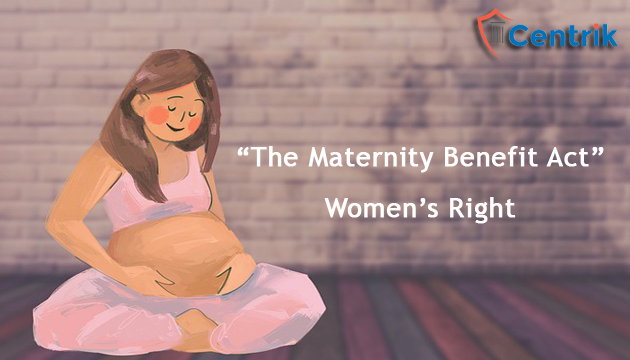
Status as on- 18/11/2021
Introduction
In every generation, women have faced some unique, prejudicial challenge. It has not been long since the women are started treated as an important human resource. Keeping in mind all the challenges faced by the women during their Maternity period a bill “The Maternity Benefit Act” was enacted in 1961 followed by amendments in 2016 and 2017. If you are a women employee who is planning to take maternity leave or are already on maternity leave this article will help you to know about the amended regulations.
The Act regulates the employment of women during the period of child birth, and provides maternity benefits. The Act applies to factory, mines, plantations, shops and other establishments. The Bill amends provisions related to the duration and applicability of maternity leave, and other facilities.
Maternity Leave:
- The maternity leave has been raised from 12 weeks to 26 weeks.
- In case where women has two or more children, the maternity benefit further continues to 12 weeks, which cannot be availed before six weeks from the date of the expected delivery.
- These maternity benefits were not to be availed before six weeks from the date of expected delivery which was further extended to eight weeks.
Right to payment:
- The employer is liable for the payment of maternity benefit at the rate of the average daily wage for the period of her actual absence immediately preceding and including the day of her delivery and for the six weeks immediately following that day.
Creche Facilities:
- A provision was included for the establishment with 50 or more employees to have a crèche within a prescribed distance where the women should be allowed four visits in a day.
Work from Home:
- A provision is included that states that the women can be permitted work from home if the nature of work assigned permits her to work from home. This option can be availed of, after the period of maternity leave, for a duration that is mutually decided by the employer and the woman.
Maternity leave for adoptive and commissioning mothers:
- 12 weeks leave will be allowed to the women who have adopted a child younger than three months or is a commissioning mother. A commissioning mother is defined as a biological mother who uses her egg to create an embryo implanted in another woman.
- 12 week period of maternity benefit will be calculated from the date of the child is handed over to the adoptive or commissioning mother.
Informing women employees of the right to maternity leave
- The Act has now made it necessary for businesses to educate a female employee of her rights under the Act at the time of appointment. The data must be provided in written or in electronic form (email).
Conclusion
Women’s most difficult phase of life is of pregnancy, where their bodies go through various health issues and mental issues. Earlier all such points were not considered by the employers which made it worse for women to survive the crucial period. Therefore, the maternity bill made a huge impact on the working of women which made it easy for them to balance the work also.
Disclaimer: The above article is based on the personal interpretation of the related orders and laws. The readers are expected to take expert opinion before relying upon the article. For more information, please contact us at rera@centrik.in




 join For Updates
join For Updates